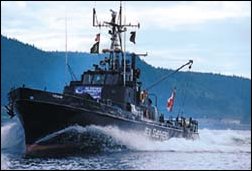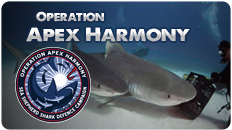Mandate
Sea Shepherd's primary mandate is to assume a law enforcement role as provided by the United Nations World Charter for Nature.
This charter was adopted by the United Nation's General Assembly on November 9, 1982.
Sea Shepherd is guided by the UN Charter World Charter for Nature and cites Section 21 under the heading of Implementations as the Society's authority to act on behalf of international conservation law.
World Charter for Nature: Implementations
21. States and, to the extent they are able, other public authorities, international organizations, individuals, groups and corporations shall:
(a) Co-operate in the task of conserving nature through common activities and other relevant actions, including information exchange and consultations
(b) Establish standards for products and other manufacturing processes that may have adverse effects on nature, as well as agreed methodologies for assessing these effects
(c) Implement the applicable international legal provisions for the conservation of nature and the protection of the environment
(d) Ensure that activities within their jurisdictions or control do not cause damage to the natural systems located within other States or in the areas beyond the limits of national jurisdiction
(e) Safeguard and conserve nature in areas beyond national jurisdiction
22. Taking fully into account the sovereignty of States over their natural resources, each State shall give effect to the provisions of the present Charter through its competent organs and in co-operation with other States.
23. All persons, in accordance with their national legislation, shall have the opportunity to participate, individually or with others, in the formulation of decisions of direct concern to their environment, and shall have access to means of redress when their environment has suffered damage or degradation.
24. Each person has a duty to act in accordance with the provisions of the present Charter, acting individually, in association with others or through participation in the political process, each person shall strive to ensure that the objectives and requirements of the present Charter are met.
This UN Charter was upheld in 1995 when Captain Paul Watson cited the Charter as his authority to order Spanish and Cuban drag trawlers off the Nose and Tail of the Grand Banks of Newfoundland. Captain Watson had been arrested in this area, outside of the Canadian 200 mile limit, by Canadian authorities and was charged with felony mischief.
During the court proceedings, the jury was advised by the Judge that Canada was a signatory to the World Charter for Nature, and as such, they must take the Charter into full account.
Captain Watson was acquitted "by reason of colour of right," and at the same time established a Canadian precedent for using the Charter to defend actions of intervention against illegal fishing activities.
Note: Colour of Right is a common law defense defined as "an honestly held belief in entitlement to property" (Source: Jurist Canada)







